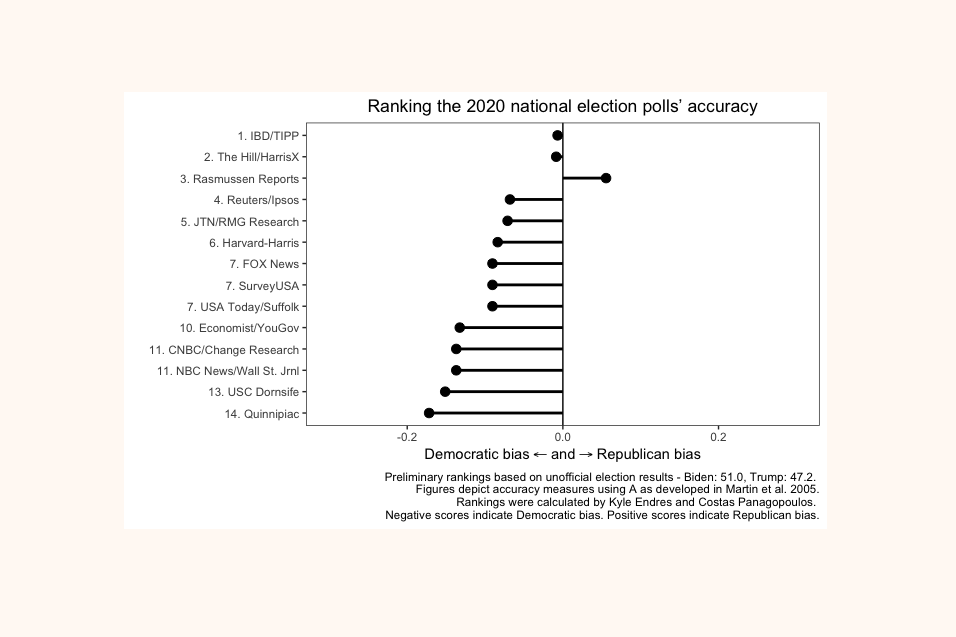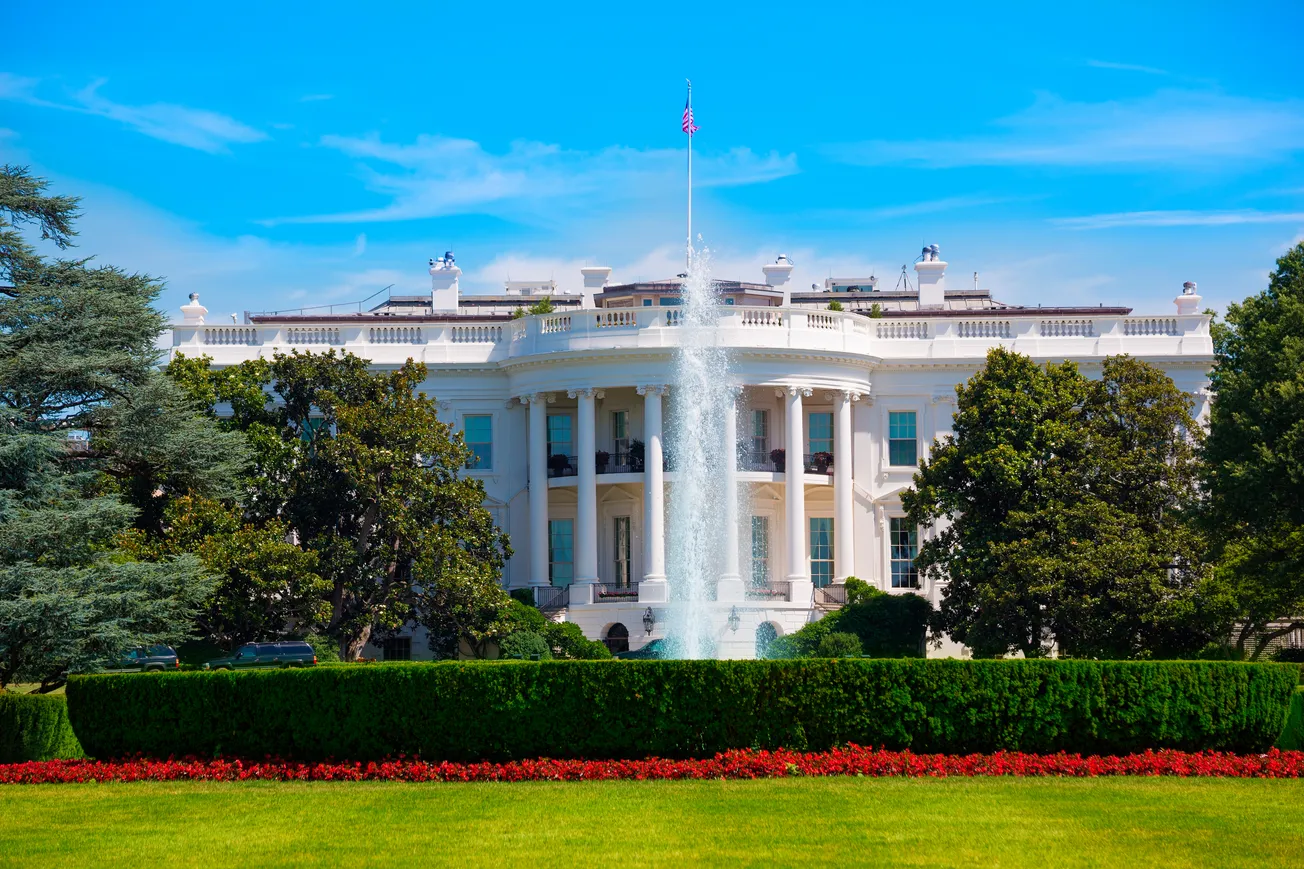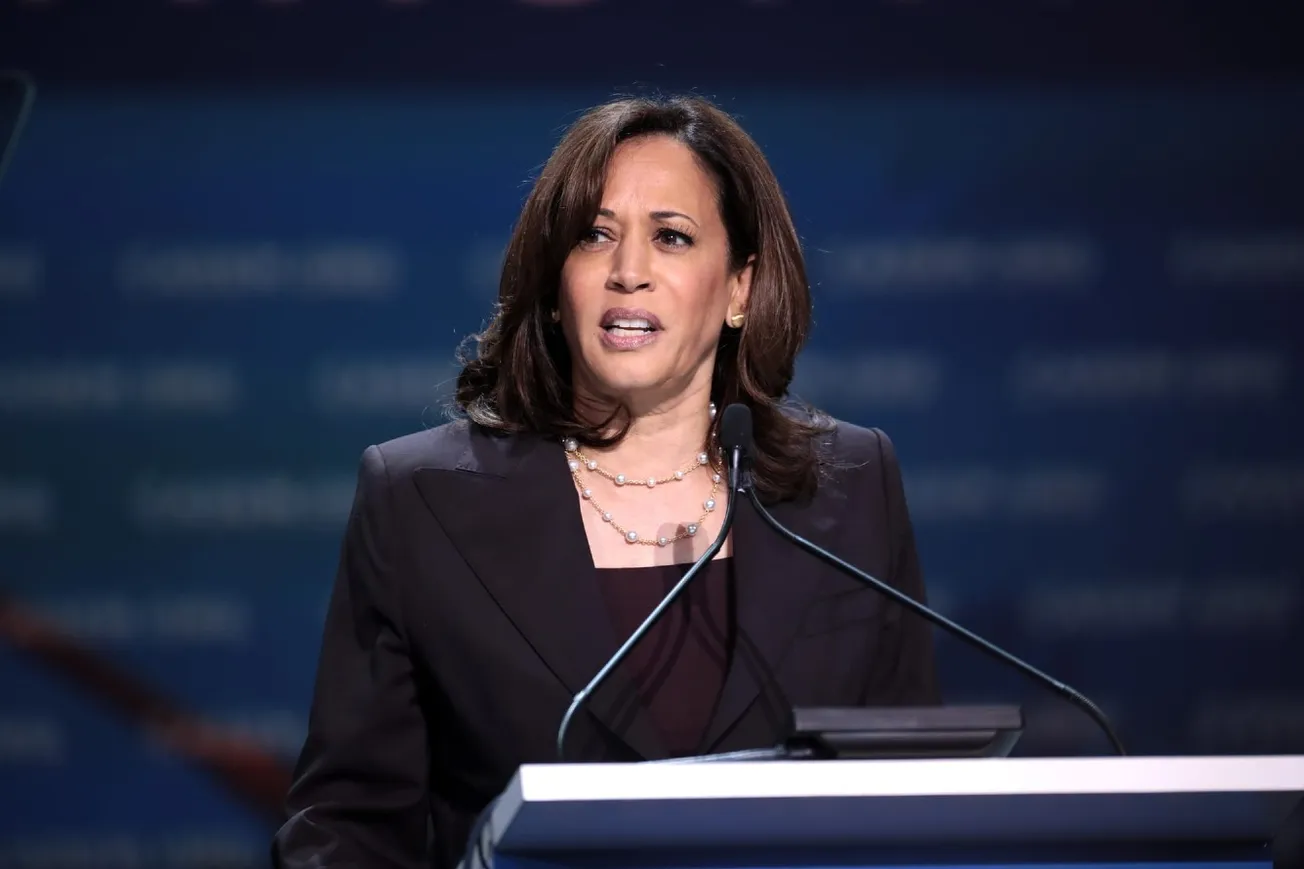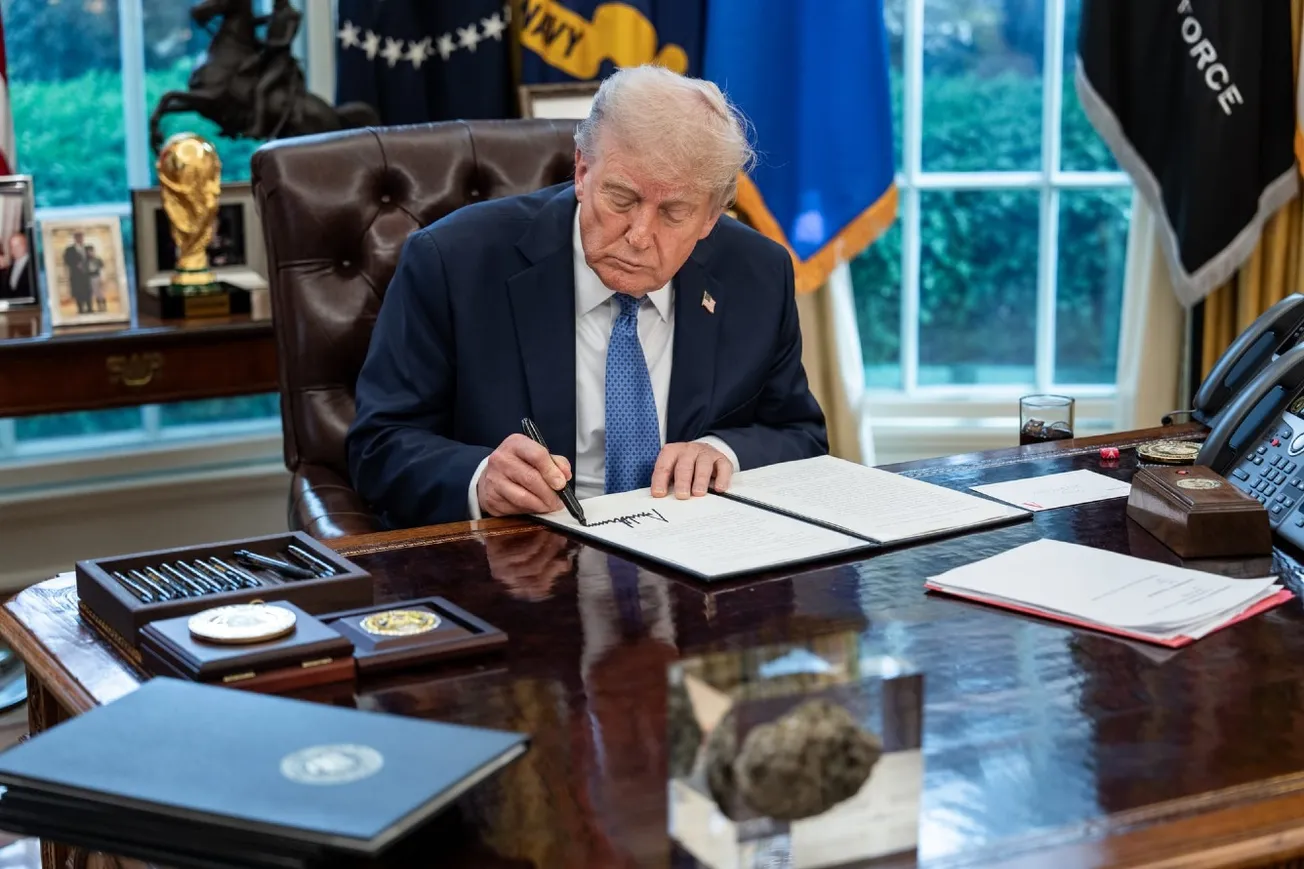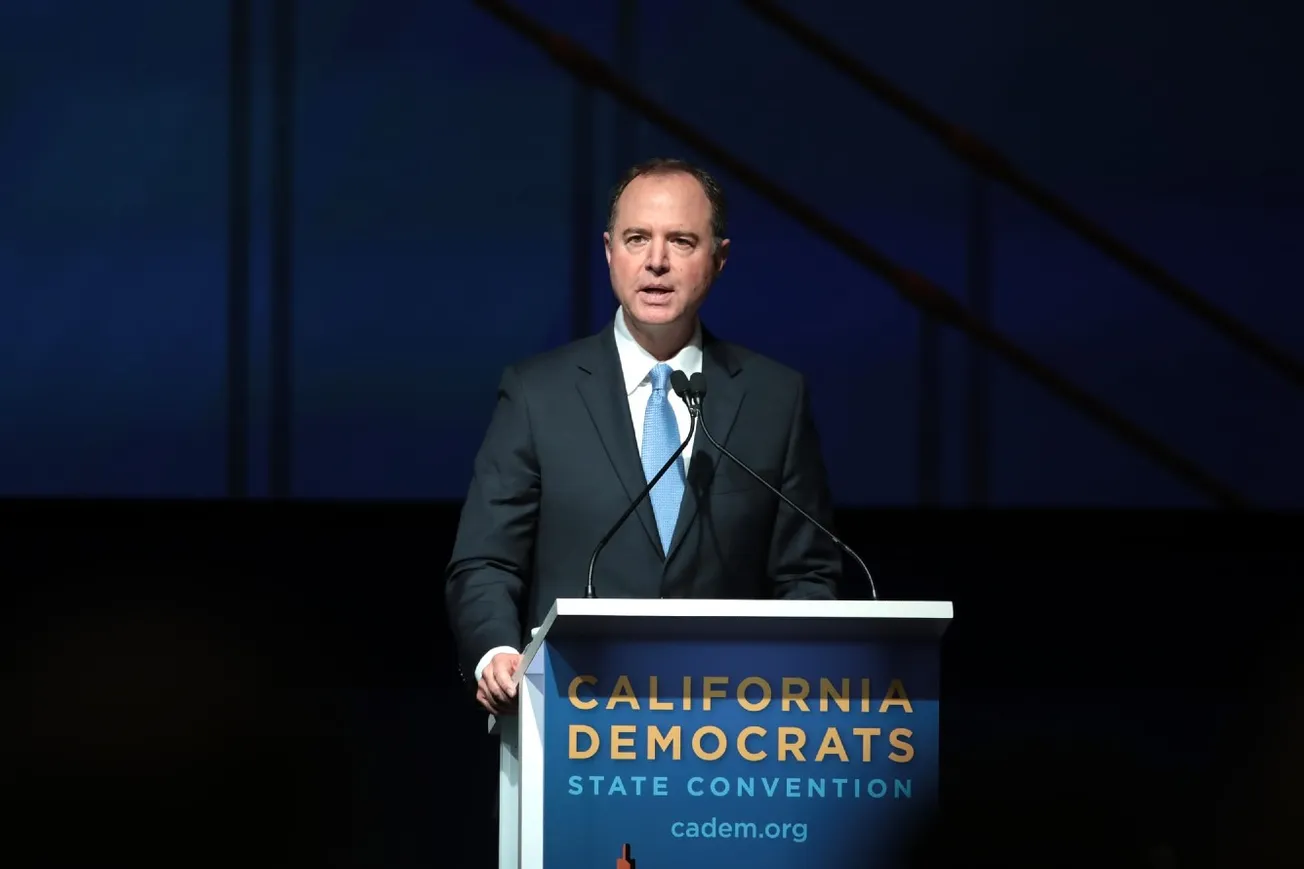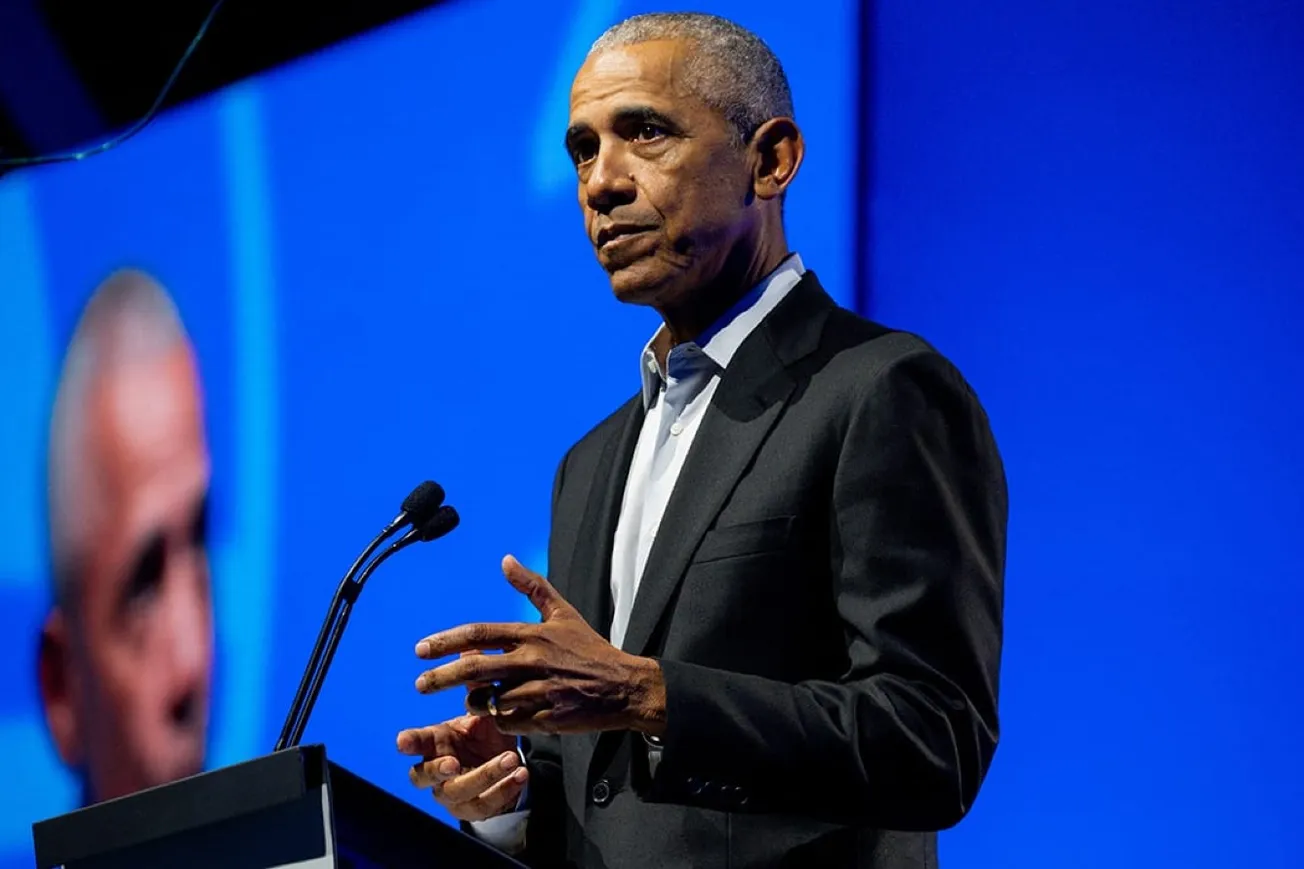Each side in today's often-angry political debate over the upcoming presidential election seems convinced that its candidate has a clear advantage. But, as of now, neither President Joe Biden nor former President Donald Trump has an obvious edge in the popular vote as we enter the final eight months of the 2024 election season, the latest I&I/TIPP Poll shows.
Despite being widely criticized for his lackluster campaign and showing continuing signs of age-related mental impairment, Biden holds a slender 43% to 42% lead over Trump. The online national poll of 1,246 registered voters was taken from Feb. 28 to March 1, with a margin of error of +/-2.8 percentage points.
Among those taking the poll, 8% said they preferred someone "other" than Biden or Trump, while 7% said they were "not sure."
The partisan breakdown was fairly even, with 85% of Dems favoring Biden and 86% of Republicans favoring Trump. Among independents, a crucial swing vote for both candidates, the prospective vote broke 37% in favor of Trump, 36% in favor of Biden, with a hefty 16% saying "other" and 11% "not sure."
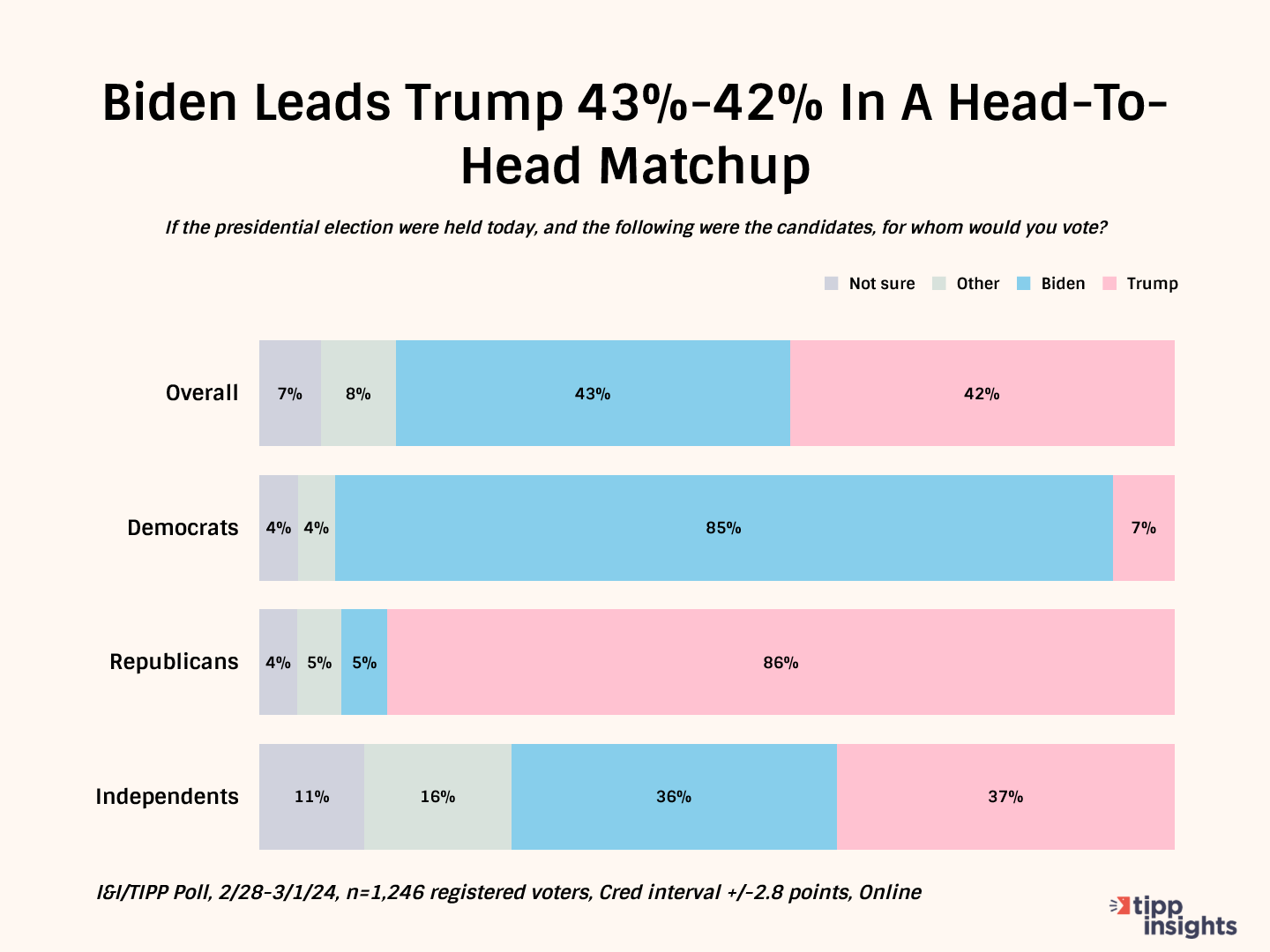
That means, in terms of overall voter preference, as of March the head-to-head battle between Biden and Trump is within the margin of error, still too close to call.
But will both make it through the primary process to be their respective party's candidates? And will the ultimate winner even win the popular vote?
As for the primaries, Biden and Trump seem safe. In the case of Trump, only one challenger remains: former United Nations Ambassador and South Carolina Gov. Nikki Haley. But in head-to-head preference in the I&I/TIPP Poll, 79% of Republicans preferred Trump, vs. 11% supporting Haley.
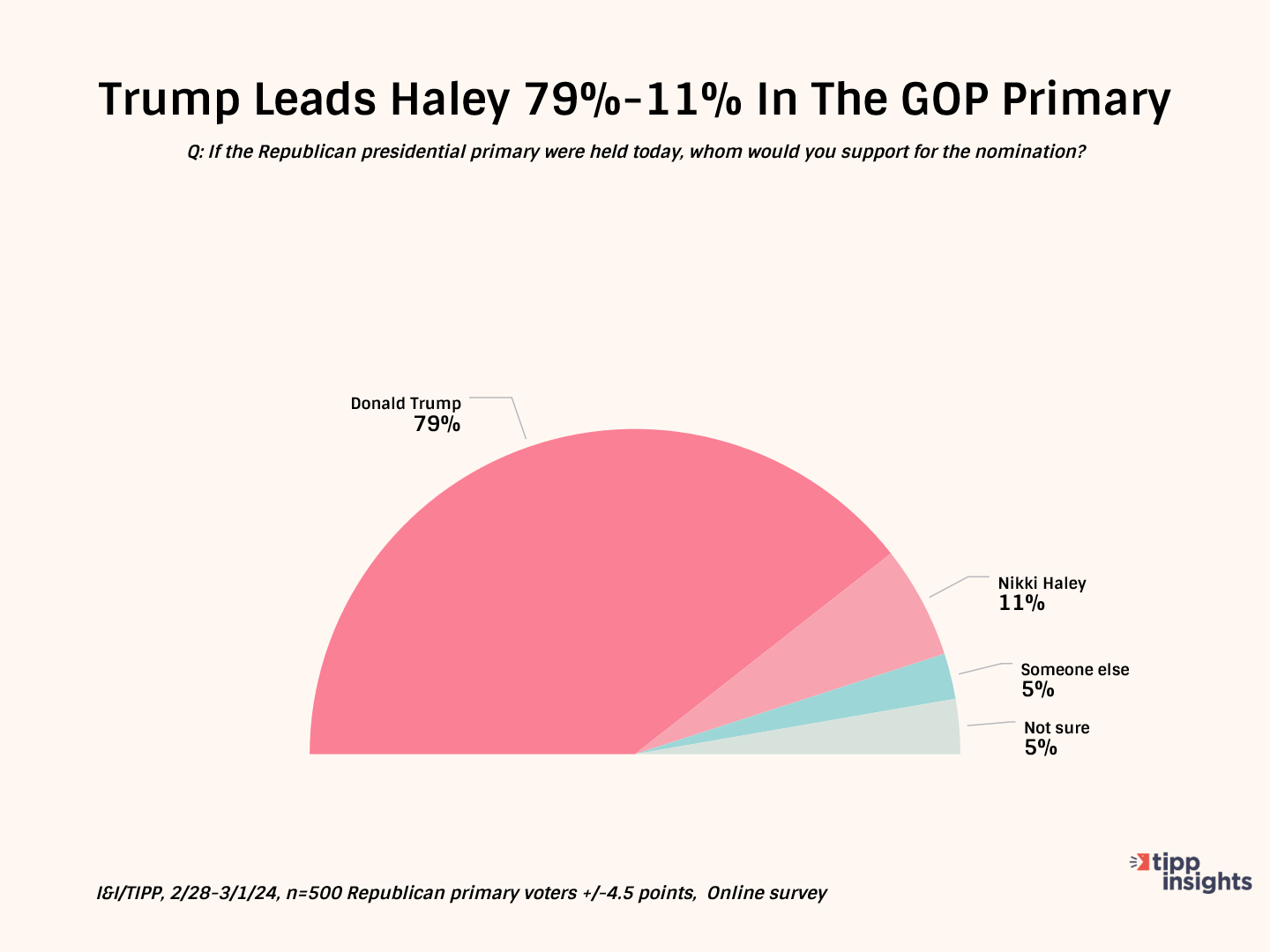
After a drubbing in her home state's primary in late February (Trump 59.8%, Haley 39.5%), Haley's chances of overtaking Trump nationally seem slim.
Meanwhile, I&I/TIPP shows Biden taking 76% of Democrats' support in the primaries, versus 9% for Minnesota Rep. Dean Phillips, Biden's last official Democratic primary challenger. While 3% of Dems said they wanted someone else, and 12% said they weren't sure, that's not enough to erase Biden's lead.
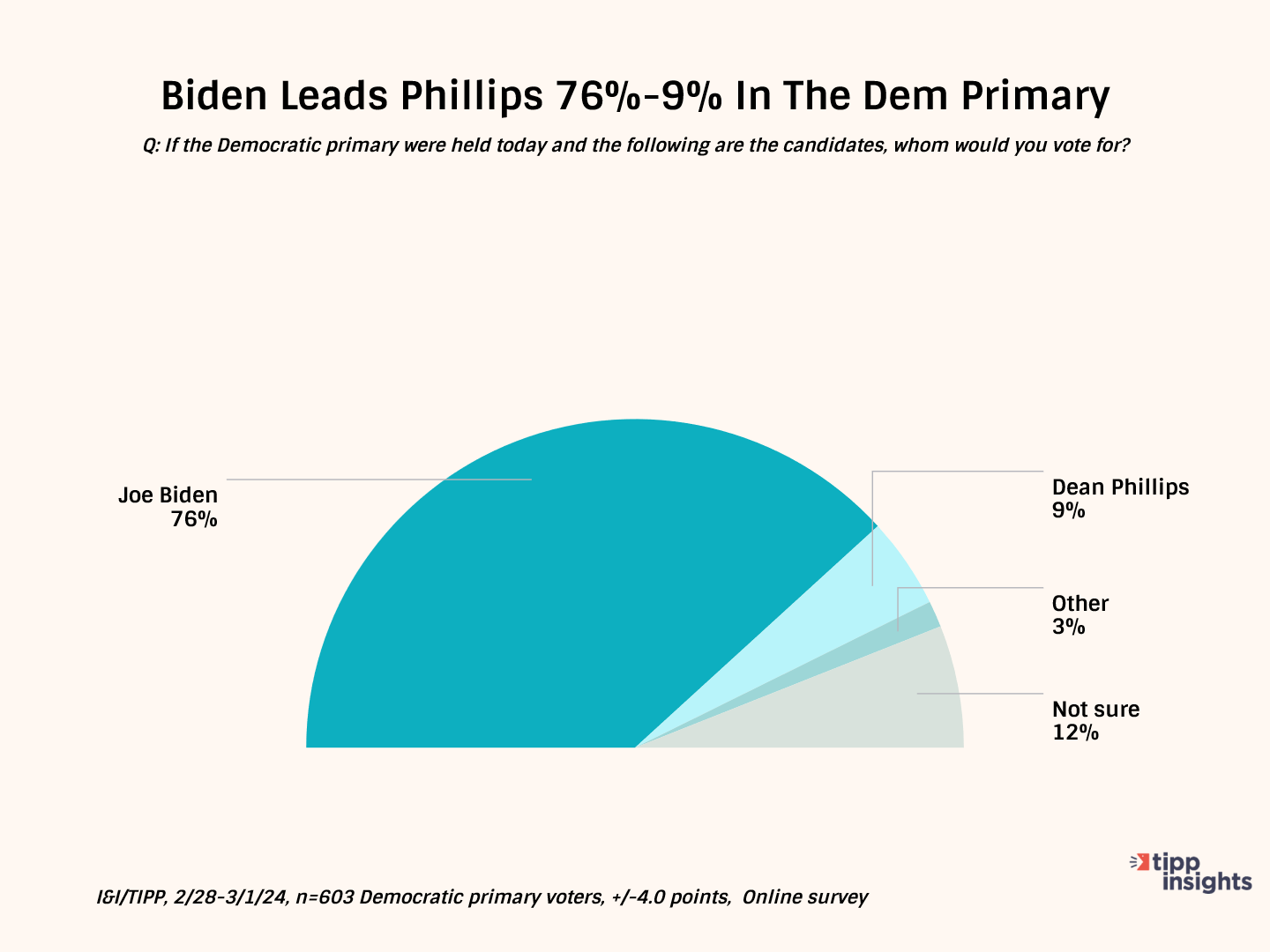
The poll gets tighter when independent and third-party candidates are included. The three major declared challengers include independent attorney-activist-author Robert F. Kennedy Jr., independent former Harvard Professor and self-declared socialist Cornell R. West, and Green Party candidate Jill Stein.
When those candidates are added, the race tightens considerably, with Biden and Trump tied at 38% apiece. Kennedy gets 9%, West 2%, and Stein 1%, for a combined 15% of the total vote for independents and third-party candidates. That third party-independent vote hurts Biden a bit more than Trump, cutting his share by 5 percentage points to Trump's 4 percentage points.
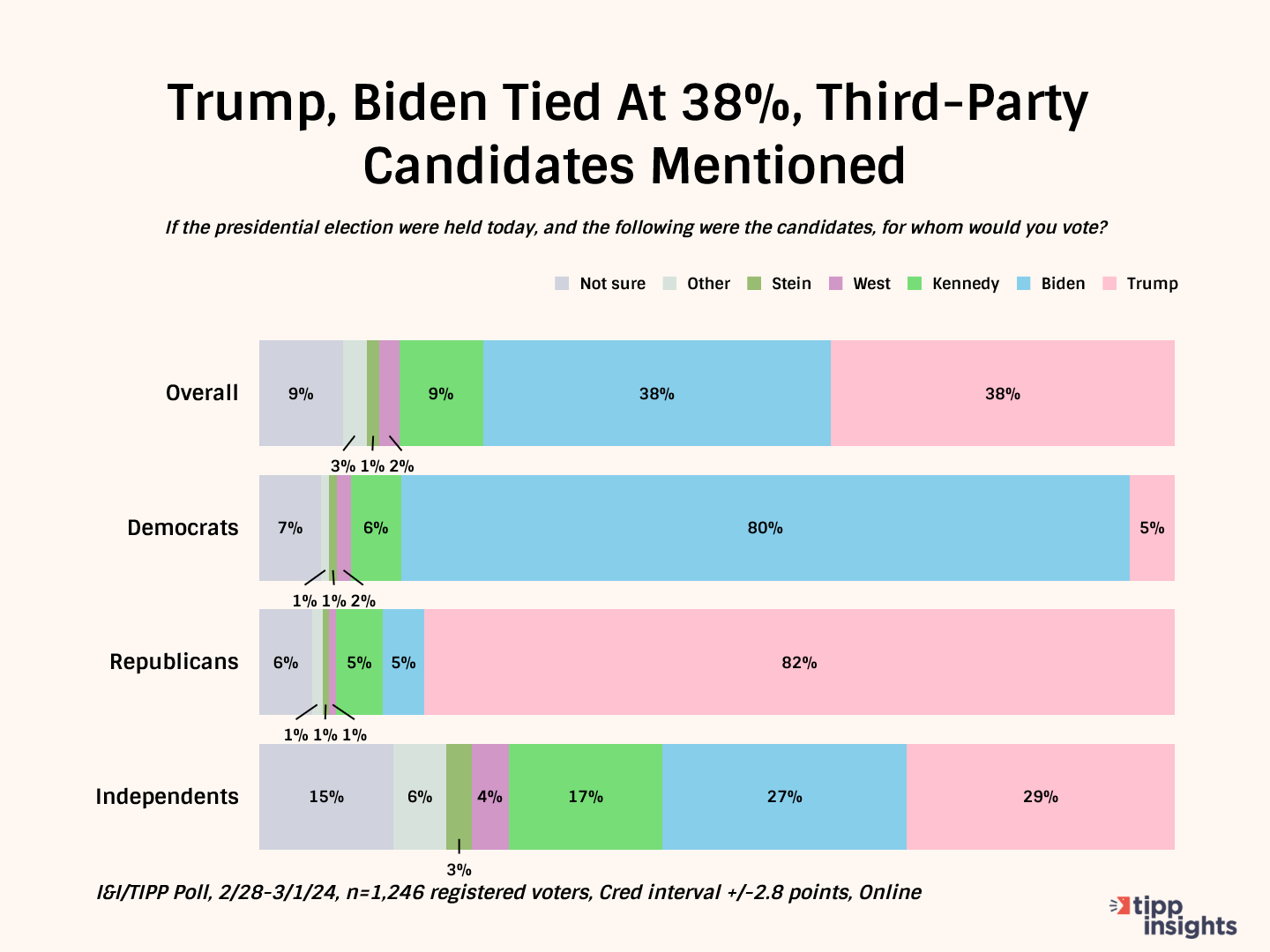
Democrats in particular worry about the charismatic Kennedy, nephew of President John F. Kennedy and son of former Attorney General Robert F. Kennedy, both of whom were assassinated. He has a built-in edge among nostalgic Democrats of a certain age and among young progressives, which could cost Biden votes even if Kennedy can't get on every state's primary ballot.
"In swing states, where Biden doesn’t have a big Democratic cushion to protect him, the impact of those independent and minor-party candidates could be enough to swing the outcome," observed the Los Angeles Times, citing a Berkeley IGS Poll showing third-party candidates costing Biden as much as 6 percentage points in the Golden State vote.
Democrats also fret over the "No Labels" third-party movement, which styles itself as a centrist alternative to the two major parties and which meets this week to decide whether to launch an independent challenge to the Dems and GOP in 2024.
"No Labels has drawn intense attention from Democratic critics of former President Donald Trump who worry the group could pull voters from President Joe Biden," noted ABC News last week.
But of course all this ignores the elephant in the room: Biden's age-related thinking and speaking issues, which even Democrats are now talking about out loud.
There's also a growing pile of evidence linking Biden to his family's alleged multi-million dollar influence-peddling efforts with companies linked to foreign governments, which many Dems fear could blow up before November's election, costing them the White House.
Because of this, speculation continues to grow about Biden either stepping down on his own or being finagled off the presidential ticket by back-room Democratic Party maneuvering, either before or after the party's late-August national convention.
If so, who would step in to take over?
I&I/TIPP asked voters the following: "If President Biden decides not to run in 2024, who would be your top choice for the Democratic candidate?"
The answer: Former First Lady Michelle Obama takes 22% of the vote, while Vice President Kamala Harris receives 20%. They are followed by California Gov. Gavin Newsom (11%), Vermont Sen. Bernie Sanders (10%), former Secretary of State Hillary Clinton (8%), Transportation Secretary Pete Buttigieg (7%), Massachusetts Sen. Elizabeth Warren (5%), and Minnesota Sen. Amy Klobuchar (2%). So while there are two favorites in Obama and Harris, neither would have a lock on the nomination at their current levels of support.
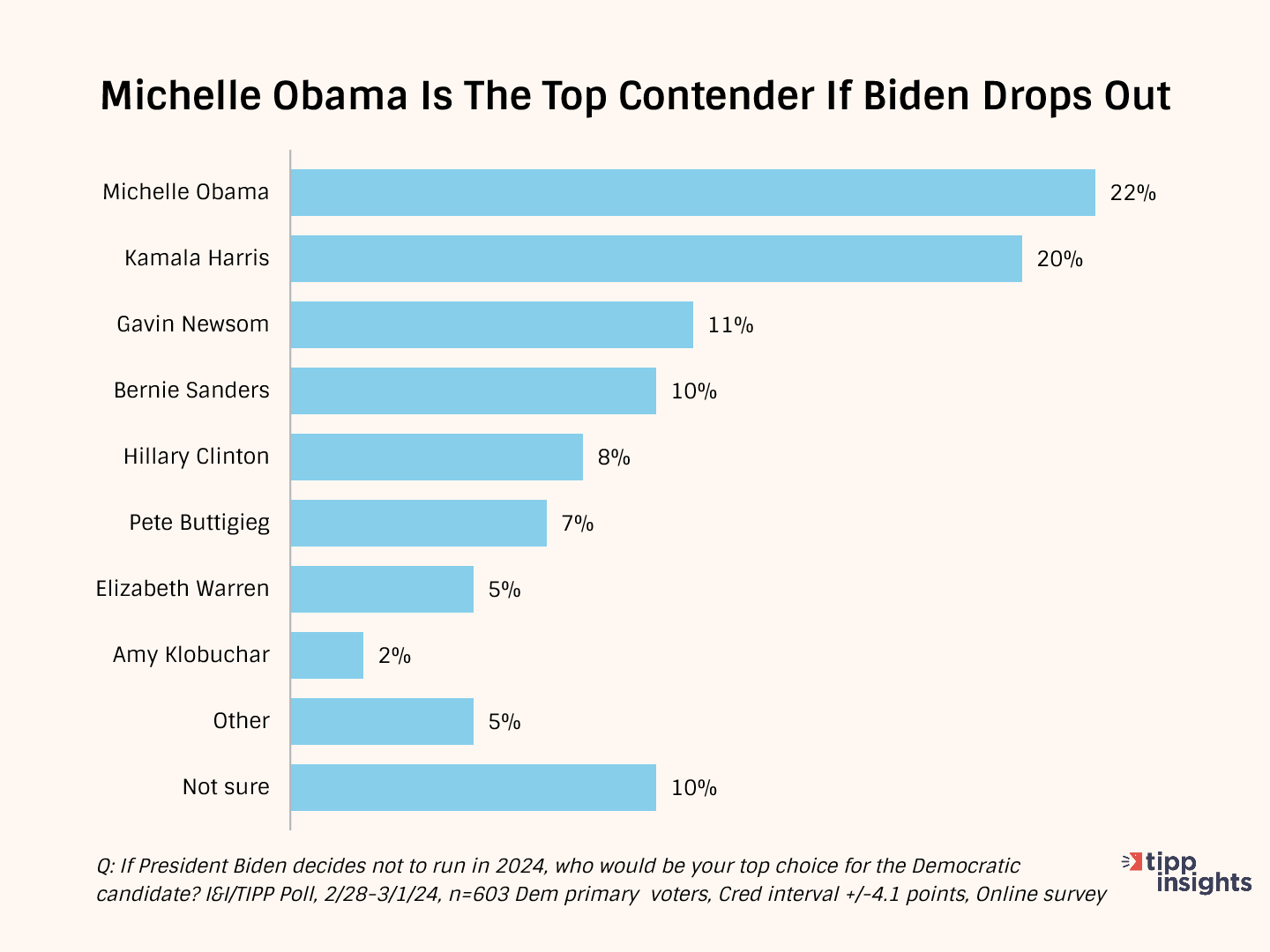
And only one, Clinton, has been on a national ticket before, and she lost to Trump in 2016. That year, Trump actually lost the national vote to Clinton, 48.2% to 46.1%, but won a 304-227 majority of the Electoral College by taking delegate-rich swing states such as Arizona, Pennsylvania, Georgia and Michigan.
So just winning the popular vote, as recent experience shows, won't be enough.
Will this year be a duplicate of 2016? Possibly. While still close in overall polls, Biden's ratings are near all-time lows for a president, and a recent New York Times/Siena Poll shows significant erosion in his support even among Democrats, with 10% of Biden voters in 2020 now saying they'll back Trump.
And Trump, polls show, has solid leads in at least seven key swing states, essential to winning the presidency.
"Only one in four voters think the country is moving in the right direction," the Times wrote in its poll coverage. "More than twice as many voters believe Mr. Biden’s policies have personally hurt them as believe his policies have helped them. A majority of voters think the economy is in poor condition. And the share of voters who strongly disapprove of Mr. Biden’s handling of his job has reached 47%, higher than in Times/Siena polls at any point in his presidency."
Of course, no one has a crystal ball. Even so, as it is now, Trump appears to have significant momentum. Whether Biden can regain traction despite his highly unpopular policies (especially on the economy and immigration) and growing concern about his age, remains to be seen.
I&I/TIPP publishes timely, unique, and informative data each month on topics of public interest. TIPP’s reputation for polling excellence comes from being the most accurate pollster for the past five presidential elections.
Terry Jones is an editor of Issues & Insights. His four decades of journalism experience include serving as national issues editor, economics editor, and editorial page editor for Investor’s Business Daily.
Want to dig deeper? Download crosstabs from our store for a small fee!
Our performance in 2020 for accuracy as rated by Washington Post:
